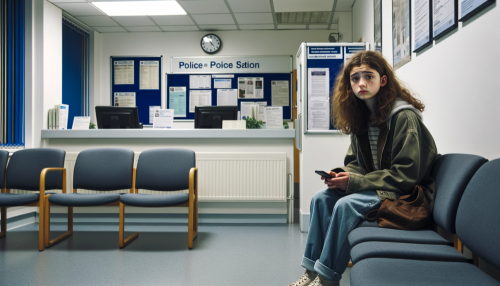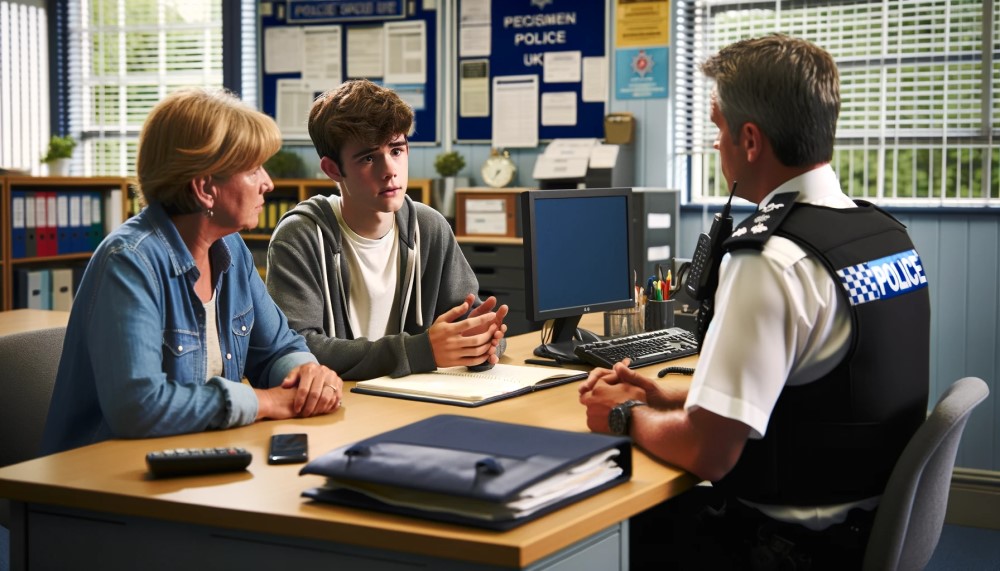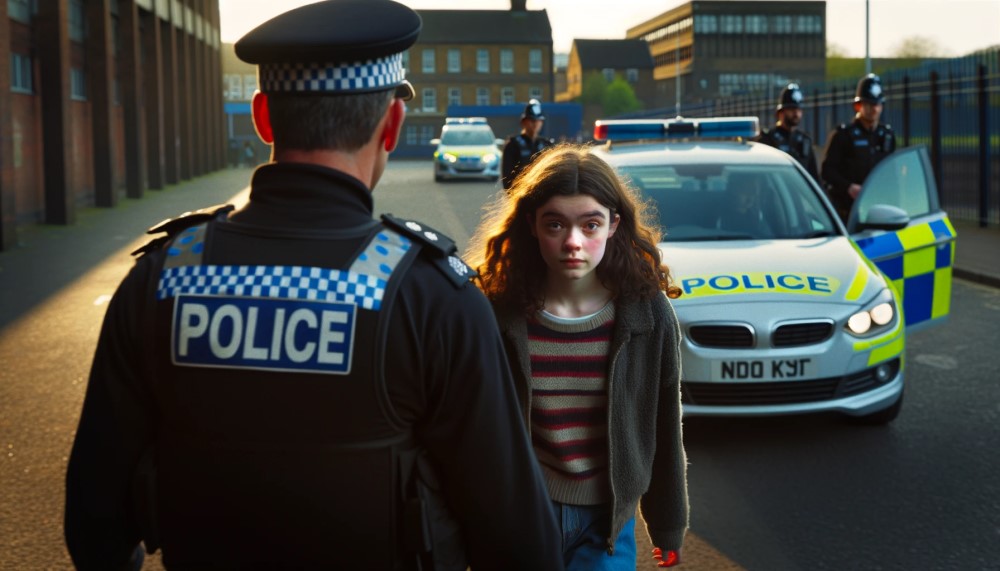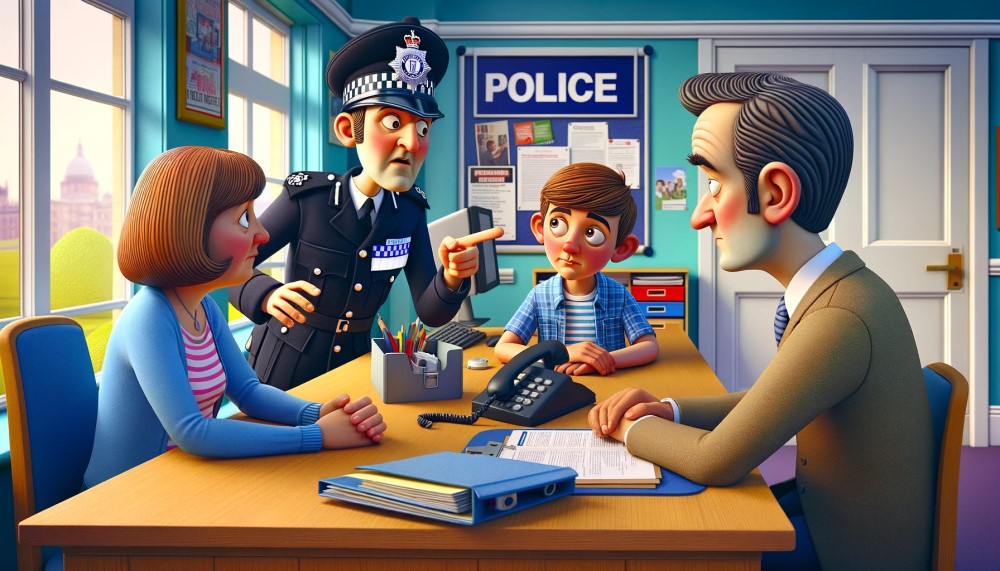What Is the Process for A Child Under Arrest at A Police Station?

What Is the Process for A Child Under Arrest at A Police Station?
The treatment of a child under arrest is a matter of utmost importance in the criminal justice system of England. It is essential to ensure that young individuals in custody are treated with care, fairness, and in compliance with the law.
This article provides an insight into how children who are under arrest are treated at a police station in England, emphasising their rights, safeguards, and the importance of a child-focused approach.
Arrest and Detention of Children

When a child is arrested in England, the process begins with the police officer informing the child of the reason for their arrest. This is done in clear and simple language suitable for the child’s age and understanding. It is essential to ensure that the child comprehends the situation and the allegations against them.
The child is also informed of their rights, which include the right to remain silent, the right to legal representation, and the right to have an appropriate adult present during questioning.
Police officers are trained to handle arrests involving children with sensitivity, recognising the vulnerability of young individuals in these situations.
Age-Appropriate Communication
Effective communication with children in custody is a fundamental aspect of ensuring their rights are upheld. Police officers receive training in age-appropriate communication techniques.
This training includes using plain language, avoiding jargon, and using visual aids or diagrams when necessary to help the child understand the arrest process and their rights.
By communicating effectively, law enforcement aims to minimie confusion and distress for the child during this challenging time.
Safeguarding Measures
An appropriate adult is a critical safeguard for children in custody. This individual is often a parent, guardian, or social worker who is not connected to the police.
The role of the appropriate adult is to provide emotional support to the child, ensure their rights are upheld, and act as an independent observer during the detention and questioning process.
Having an appropriate adult present helps protect the child’s interests and ensures that they are treated fairly and respectfully.
Legal Representation
Children have the right to legal representation during their time in custody. Legal representatives are solicitors or legal advisors who can provide legal guidance and support.
The legal representative’s role includes explaining the legal process to the child, advising them on their rights, and assisting with any legal matters that may arise during questioning.
This ensures that the child fully understands their situation and can make informed decisions regarding their legal rights and responsibilities.
Custody Conditions

Police stations in England often have designated custody suites designed to create a less intimidating environment for young detainees.
These child-friendly facilities include comfortable seating, age-appropriate furnishings, and a separate area for consultation with legal representatives and appropriate adults.
The aim is to reduce the stress and anxiety that children may experience while in custody.
Access to Necessities
Children in custody have the right to access necessities such as food, water, and bathroom facilities.
Police must ensure that the child’s basic needs are met to guarantee their comfort and well-being during their time in custody.
Any medical needs or medication requirements should also be addressed promptly.
Interviewing and Questioning
When police officers interview children, they are trained to use age-appropriate and non-coercive techniques.
This includes avoiding aggressive questioning tactics and ensuring that the child feels safe and comfortable during the interview.
By creating a supportive environment, the goal is to obtain accurate and reliable information while minimising the child’s distress.
Recording Interviews
To maintain transparency and create an accurate record of the interview process, all interviews with children in custody are typically recorded.
This recording can be crucial in legal proceedings and ensures that the child’s statements are accurately captured.
Legal Rights and Protections
The right to remain silent is extended to children in custody just as it is for adults. Children have the right not to answer questions that may incriminate them.
Police officers must respect the child’s decision to exercise this right, and any adverse inference cannot be drawn from their silence.
Right to Legal Advice
Children have the right to consult with their legal representative before and during interviews.
Legal representatives play a vital role in ensuring that the child understands their rights and the legal implications of their actions.
They can also advise the child on how to respond to questions and provide support throughout the process.
Length of Detention
The law in England places limits on the length of time a child can be held in custody without being charged.
These limits are in place to prevent prolonged detention and ensure that the child’s case is processed promptly.
If the police require more time for investigation, they must seek an extension from the court.
Child-Focused Approach

Throughout the entire process, from arrest to questioning and potential charging, the best interests of the child are paramount.
Decisions made by the police, legal representatives, and appropriate adults should prioritise the child’s welfare, safety, and well-being.
Support and Guidance
Social services and other relevant agencies may become involved to provide additional support and guidance for the child during and after their time in custody.
These services can assist with addressing any underlying issues or concerns related to the child’s situation.
Conclusion: Ensuring Fair and Compassionate Treatment For a Child Under Arrest

In conclusion, the treatment of children under arrest at a police station in England is governed by a comprehensive set of laws and procedures designed to protect their rights and well-being.
By upholding these principles, the criminal justice system in England aims to provide a fair and compassionate approach to young individuals in custody, ensuring that their rights are respected, their needs are met, and their best interests are central to the process.
It is a collective responsibility to ensure that children in custody are treated with care, fairness, and respect, ultimately promoting a just and child-focused approach within the legal system.
Notice: Informational Content Disclaimer
The content provided on this website, including articles, blog posts, and other informational materials, is intended for general informational purposes only. It is not intended as, and should not be considered, legal advice.
Visitors to this website should be aware that the information presented here is not a substitute for seeking legal advice from a qualified solicitor or legal professional. Each individual's legal situation is unique, and the information provided may not be applicable to specific circumstances.
If you require legal advice or have specific legal questions, we encourage you to contact us directly. Our experienced team of solicitors is here to assist you with your legal needs and provide tailored advice to address your concerns.
Please be advised that any communication through this website, including the use of contact forms or email, does not create a solicitor-client relationship. Confidential or time-sensitive information should not be sent through this website. To establish a solicitor-client relationship and discuss your legal matters in detail, please contact us for a consultation.
We strive to provide accurate and up-to-date information, but we make no representations or warranties regarding the accuracy, completeness, or suitability of the information contained on this website. We shall not be liable for any reliance placed on the information provided herein.
Thank you for visiting our website. We look forward to the opportunity to assist you with your legal needs.




